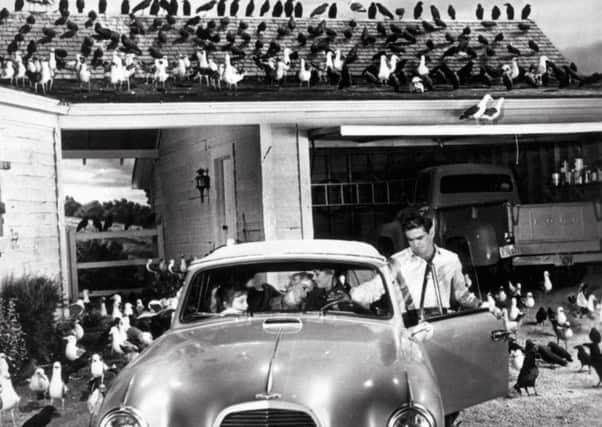Jane Bradley: The wisdom of our animal friends


I think many people would agree that it is time to stop humans making important economic decisions.
For hundreds of years now, nay, thousands, we have allowed people to be the ones to choose how we run our country and our economy – and it is fair to say that in recent years, at least, it seems that they’re not always making a great job of it.
Advertisement
Hide AdAdvertisement
Hide AdTherefore, move over bankers, economists and politicians, it is time to let parrots take the spotlight and utilise their extraordinary economic cognitive ability. Yes, you read that right – I said parrots.
Earlier this week, scientists published a study which demonstrated that parrots are capable of making economic decisions. I have to admit, I did have to check the date to make sure it wasn’t 1 April before I pitched this story to my news editor, who thankfully, rather than having me sent home for a nice rest, liked it as much as I did.
The investigation, by researchers at the Max Planck Institute for Ornithology, allowed the clever parrots to trade three different types of token for food of either low, medium or high value. After that, they were given the choice between an instant food reward or one of the tokens – which could potentially give them the chance of a high value food. Quite a tricky concept to follow, you would think – but the researchers quickly realised that the clever parrots only rejected the immediate reward and chose the token if the token’s value corresponded to higher quality food: demonstrating an ability to inhibit their immediate impulses for greater reward in the future.
It’s arguably the most impressive feat of economic understanding we have seen since the days of David Hume. Yet it is not just parrots which demonstrate incredible abilities. They have long been saddled with the moniker of “dumb animals”, but ongoing scientific investigation has proved that animals are anything but stupid. In fact, some of them might prove to be as clever as you and me – well, as clever as you, at least.
Flying high beside parrots in the avian world, crows have also often shown terrifying levels of intelligence. Forget economic understanding, these birds prefer to demonstrate their scientific skills. Some have been seen to drop nuts from an exact height which they know will crack the shells open, while others have been spotted depositing nuts in front of a moving car, knowing that the same outcome would occur when they are driven over by a heavy vehicle. It has also been claimed that they actually are able to memorise the working patterns of bin collection workers, so that they can swoop while bin lids are opened to be emptied. It really is incredible stuff.
Animals also have the ability to help humans with things that even in an age of great scientific advancement, we are unable to do ourselves.
In 2004, researchers found evicence that some dogs were able to pick up on when a child was likely to have an epileptic seizure. In a study carried out by neurologists at a hospital in Alberta, Canada, nine of 60 dogs were able to predict a seizure and raise the alarm by licking, whimpering, or standing next to a child. What was more, these dogs were remarkably accurate – predicting 80 per cent of seizures, with no false reports.
In the US, there is a scheme, akin to our Guide Dogs for the Blind charity, which provides “helping hand monkeys” for people with physical disabilities. These cute little simians can carry out tasks from pouring their owner a drink, to turning on a DVD player, turning pages of a book and even helping them scratch an unreachable itch. Usually capuchin monkeys, of which there are many in residence at Edinburgh Zoo – where they climb right up to the glass window and mimic the gestures of children standing on the other side. Of course, a human helper could do all of these things, but they would take up so much more extra space while doing so - a capuchin monkey measures just 30 to 56 centimetres long.
Advertisement
Hide AdAdvertisement
Hide AdAnd guide dogs themselves must not be forgotten, carrying out such amazing feats as finding safe crossing points on the road, while also judging height and width so that the person does not injure themselves when navigating obstacles – and finding doors for people to enter a building.
Even squirrels – possibly not so well known for their large brains and which have a maximum lifespan of about 12 years – have the ability to deceive once they reach adulthood, scientists have discovered, a skill which humans take at least the first three years of their lives to master. Meanwhile, dolphins communicate through whistles and clicks which experts believe represent not only words, but names and one study found they can recognise themselves in the mirror.
Elephants, according to a study by researchers from Sussex University, can understand the difference between languages and whether a man, woman, or child is speaking – that’s more than a lot of humans can do. Meanwhile, octopus follow social conventions and cues, demonstrating the ability to understand when someone is being overtly friendly or not – and responding accordingly.
It’s all pretty clever stuff and should serve as a reminder that while we might believe that we’re at the top of the food chain, there are other inhabitants of this planet which aren’t far behind. Meanwhile, hands up if you’re in favour of the Brexit negotiations being taken over by our economically gifted parrot friends? I know I am.
